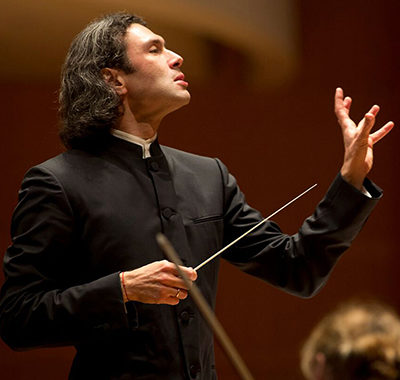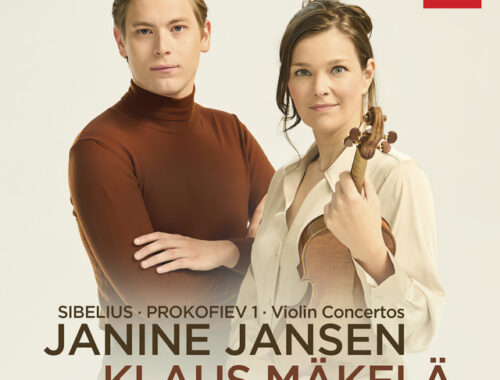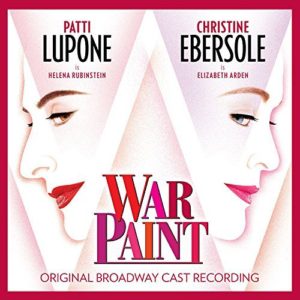Tchaikovsky “Eugene Onegin”, Royal Opera House (Review)
 We begin where we will end – with Onegin and Tatyana closing the door on the life that was and the life that might have been. It’s one of the great “what ifs” of opera and Kasper Holten’s first production as Director of Opera at the Royal Opera House is a bold one – thoughtful, imaginative, a start-as-you-mean-to-go-on affair. Not everything quite hits the spot – some things are perhaps a touch overworked – but the cumulative effect of the staging is intense and both seen and felt in Tchaikovsky’s shattering final scene where the fateful couple’s younger selves rush into the room, the heat of their passion so near and yet so far, the reality of what they might have had suddenly so close that it’s once again palpable.
We begin where we will end – with Onegin and Tatyana closing the door on the life that was and the life that might have been. It’s one of the great “what ifs” of opera and Kasper Holten’s first production as Director of Opera at the Royal Opera House is a bold one – thoughtful, imaginative, a start-as-you-mean-to-go-on affair. Not everything quite hits the spot – some things are perhaps a touch overworked – but the cumulative effect of the staging is intense and both seen and felt in Tchaikovsky’s shattering final scene where the fateful couple’s younger selves rush into the room, the heat of their passion so near and yet so far, the reality of what they might have had suddenly so close that it’s once again palpable.
Eugene Onegin is about the folly and self-deception of youth and in using “doubles” for Onegin and Tatyana’s younger selves Holten never allows us to escape the aching nostalgia that is at the heart of Pushkin and Tchaikovsky’s drama whilst constantly reminding us of the road not taken. It also frees him to use mature singers in roles that must initially convey the first flush of youth. The over-egging for me occurs in the first scene where the stylisation of everyday country folk – as in the Larin estate workers (very lavishly attired peasants, these – I didn’t much care for Katrina Lindsay’s costumes) – is carried through into the jolly folk song where Tatyana and Onegin, lifted high above the crowd, become the embodiment of its gauche romantic sentiments. It looks and feels clumsy and calculated and somewhat pre-empts the startling presence of two Tatyanas in the Letter Scene.
This is indeed a high-risk strategy for one of opera’s most famously emotive episodes and the danger (not entirely overcome here) is that by using a highly expressive dancer (Vigdis Hentze Olsen) as the young Tatyana you are pulling focus away from the singer, Krassimira Stoyanova, in the moment of her greatest revelations. And Stoyanova is herself so expressive, singing and feeling the scene quite wonderfully, its still centre beautifully distilled by Robin Ticciati and the Royal Opera Orchestra’s wind soloists.
At the climax of that scene the young Tatyana passes the finished letter to her older self – a moment startlingly mirrored when the young Onegin hands over the dueling pistol to his older self. The doubling in this scene is a powerful pay-off for Holten’s dramatic device, the older and wiser Onegin quite literally holding on to his dear friend Lensky through his poignant aria (affectingly sung by Pavol Breslik) and in advance of the young Onegin’s arrival. The fiasco of the dual itself is intensified with Lensky moving forward because he sees Onegin momentarily lost in thought and thinks he might not be going to shoot after all. Snapping out of his reverie the fateful shot is pure reflex – messy, pointless – and in the silence at the end of the scene Holten has Simon Keenlyside’s Onegin put the gun to his own head before the fanfares of the St. Petersburg ball scene jolt him back to reality.
That is a moment of directorial inspiration and it points up the most brilliant thing about this staging and that’s the way in which each of Tchaikovsky’s “Lyric Scenes” bleed into one another, the way in which the detritus of these wasted young lives accumulates on the stage – Tatyana’s books, a broken tree branch from the fateful duel scene and, most chilling of all, Lensky’s body.
Occasionally I found myself craving more heat from the evening, a charge of spontaneity, particularly from Robin Ticciati’s conducting which was detailed and elegant but from my seat in the stalls circle a bit low on voltage – or, to put it another way, too controlling of the passions that seethe beneath Tchaikovsky’s innate “classicism”. I have mentioned individuals in the cast and should acknowledge Simon Keenlyside’s ability to convey an air of pent-up, buttoned-up, reserve, even awkwardness, making his baring of the soul in the final scenes especially telling. Vocally he and Stoyanova were impressive and, as I have already implied, Pavol Breslik found tender nuance and an authentically Slavic sound for Lensky.
Mia Stensgaard’s set (enhanced by Leo Warner’s video designs which bring nature into our midst) undergoes dramatic transformation in the shift to St. Petersburg. A succession of huge rooms recede where once were fields. The arrival of Prince Gremin (the excellent Peter Rose) into the midst of the final Tatyana/Onegin confrontation is Holten’s final coup de grace. Tatyana is locked into the compromise of a loveless marriage. Passion, as forever enshrined in Onegin, is locked out.
Photograph: Simon Keenlyside as Eugene Onegin with dancer in Eugene Onegin © ROH / Bill Cooper 2013 Flickr: http://www.flickr.com/photos/royaloperahouse/8446489991/in/photostream


